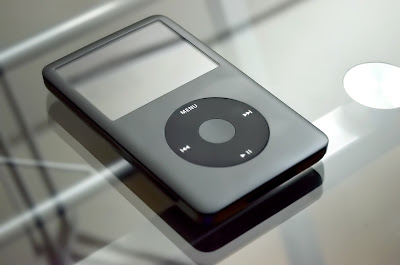Apple has announced it will stop making its own music device, the iPod Touch, ending the life of a device widely lauded for revolutionizing how people listen to music.
When it was launched in 2001, an iPod could store a thousand music records. Today, there are more than 90 million songs on Apple's streaming service.
The iPod Touch was designed by the same team that later invented the iPhone, which soon eclipsed the iPod.
Apple's last iPod update was in 2019, and the company has produced several iPod models over the years — among them the Nano and Chavelle, but the iPod touch, released in 2007, is the latest model to stop production.
Apple says the devices will remain available for purchase "until they run out of stock".
The device has "redefined how we discover, listen to and share music," said Greg Joswiak, Apple's senior vice president of global marketing.
iPod fans have taken to social media to share their thoughts on the news and put together their memories of the music device.
There were rumors at the time that the company would announce a new music player after an invitation to a launch party for new devices said, "Hint: it's not a Mac."
Many celebrities with their power and stardom over the years have supported the iPod, among them John Mayer, U2 and Oprah Winfrey. The automaker BMW introduced the first in-vehicle infotainment system with an iPod built-in, and within a few years, most automakers followed suit.
But a technical analyst says it was inevitable that one day the iPhone would replace the iPod.
"When Apple invented the iPhone, I knew it would eventually lead to the beginning of the end of the iPod," Ben Wood, chief analyst at CCS Insight.
Carolina Milanesi, of Creative Strategy, said the decline in iPod sales was linked to the rise in iPhone sales, as was the transition from digital sales to live broadcasting.
"Perhaps the demise of the iPod is the best example of Apple's lack of interest in tying some of its products over others," she added.
Analysis by Zoe Kleinman:
The iPod wasn't the first MP3 player on the market, and neither was the iPhone, which wasn't the first smartphone.
But Apple's singular design proved that digital music needed a boost to begin luring people away from CD and cassette players and sharing audio files.
In 2001, the music industry was struggling to survive in the face of illegal file sharing that was transcribed and shared on platforms in a faster way, with which record companies could not keep up and take legal action.
The launch of iTunes and the iPod shortly thereafter served as a lifeline to inject more download revenue for legitimate music fans.
The device also revived Apple's fortunes in a market once dominated by Windows PCs.
The late Steve Jobs presented the new device on stage at an event that took place on October 23, 2001.
"With an iPod, listening to music will never be the same again," he said. And he was right in many ways.


Comments
Post a Comment